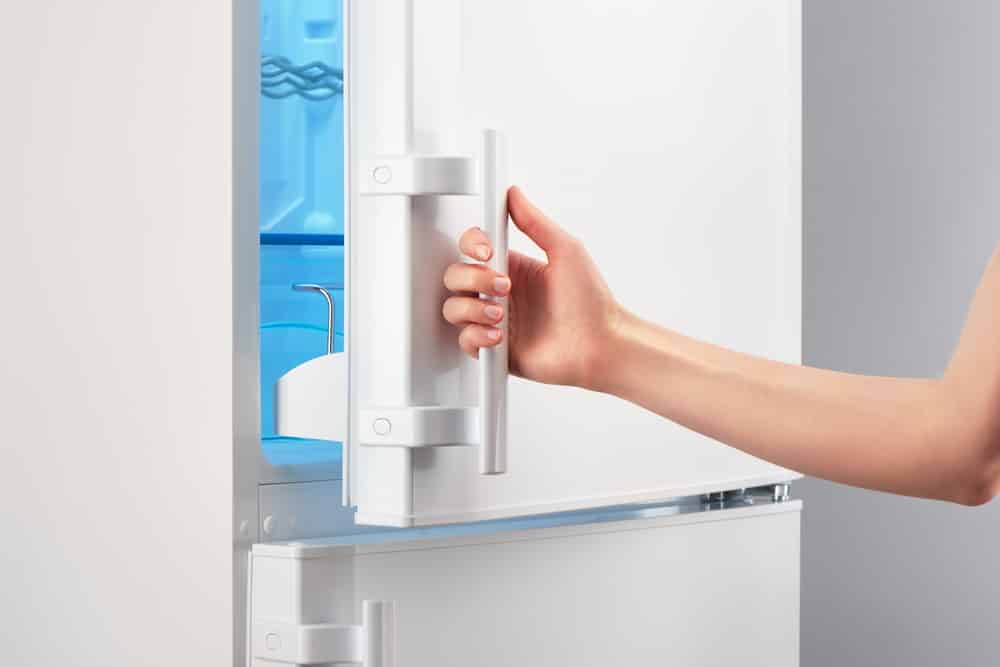
A refrigerator is an important appliance that is used to keep the temperature low, so that food and other products can be stored by preventing them from decaying. It has become a vital part of any house. However, it can be quite troublesome to run into problems when using these appliances. So, if you are facing any issues with the refrigerator, then here are some troubleshooting techniques that you can try:
Some of Midea refrigerator troubleshooting are listed below:
Midea Refrigerator Troubleshooting
1. Constant Cycling or Running of the Refrigerator:
A unit that cycles frequently is the most common problem in a refrigerator. A refrigerator needs to run to keep the temperature cold for food not to rot. However, if your refrigerator is running constantly then it can be noisy and may cost heavy on your pockets, as refrigerators are the most power-intensive appliances in any home.
Therefore, the main cause of the refrigerator running too much can be the build-up of debris and dust around the unit’s condenser coils. To see if this is the problem, you must cut off the power supply to your refrigerator and then check the coils that are mostly at the bottom of the unit. If the problem persists, then try checking the temperature of your refrigerator. It might be set low causing it to run constantly to maintain the temperature.
2. Leaking of Water from the Refrigerator:
Water leakage is another very common and alarming problem. This is causing the consequence of a blocked drain or a bulged or frozen water supply line. The defrost drain can be blocked due to food particles. This can be solved by flushing the drain line from inside the freezer via warm water. Moreover, you need to clean the drain-that is accessible from the inside of the freezer- manually. Thus, clean the drain hose with hot water and soap to remove the clogged debris.
3. Ice Build-Up in the Refrigerator:
Ice build-up can be caused if the refrigerator is kept open for too long. This causes an increased humidity level inside the freezer. The only easy solution is to close the door properly once you are done with your work. Another reason for ice build-up could be the faulty seal, which may let in outside air and increase the humidity level.
4. Water Dispenser Not Working In the Refrigerator:
Nowadays many refrigerators come with an inbuilt dispenser. However, the unit’s water dispenser may not work due to several reasons. One reason can be that the water tub in the unit’s freezer door may be frozen. However, this tub can be easily disconnected and thawed, allowing the water to flow without much hard work. Another problem can be that the water inlet valve may be defective. This valve supplies the dispenser with water and can break. You may also face these problems due to low water pressure. Thus, water is not pushed on with enough force to the inlet valve.
5. The Refrigerator Is Warm and Not Cooling Properly:
Refrigerators are meant to stay cold. If they are not even following the basic principle of keeping the food cold, then the refrigerator is useless. Therefore, if your refrigerator is not cooling properly then it must be repaired immediately as it would not be less than a cupboard. So, this problem is usually caused by the default in condenser coils. First, start by cleaning these coils. Then also check the condenser fan motor to make sure that it is running properly.
6. The Refrigerator Is Producing Too Much Noise:
The refrigerator should not be making too much noise that intrudes on your daily life. If you see your refrigerator producing noise, then it must have a problem with its fans. Most refrigerators have both a condenser fan and an evaporator fan. The condenser fan cools the unit’s condenser coils and the evaporator fans pull the air over the freezer’s evaporator coils. These fans run simultaneously and the problem with any one of the fan’s motors may be the main reason behind the production of excessive noise.